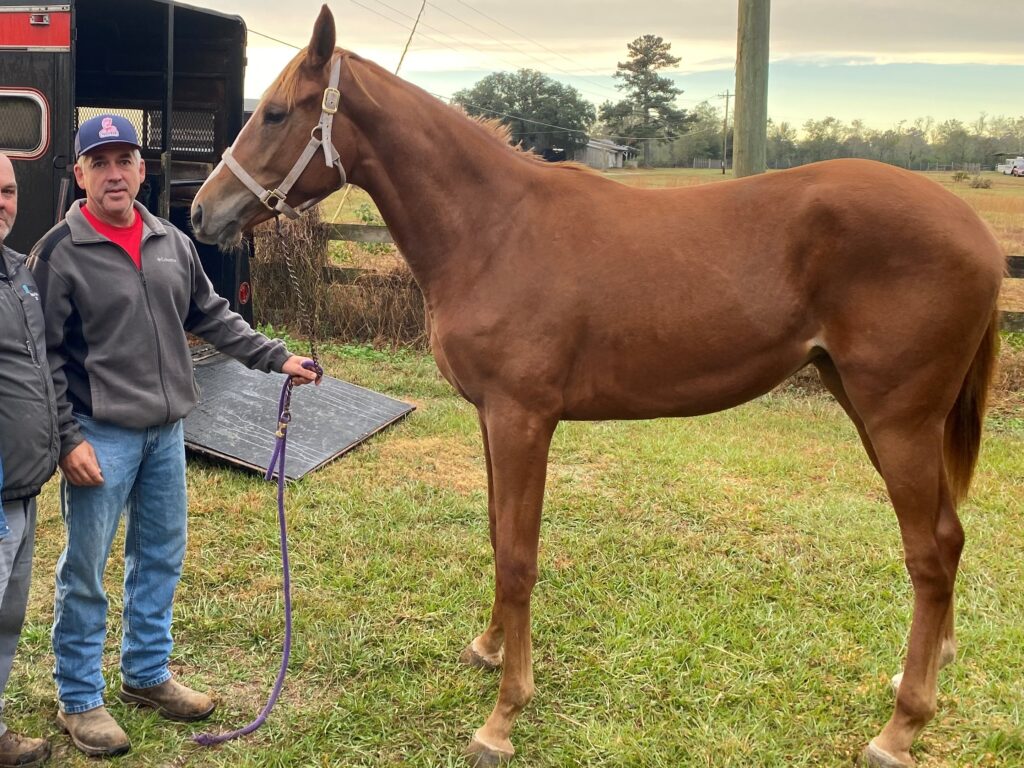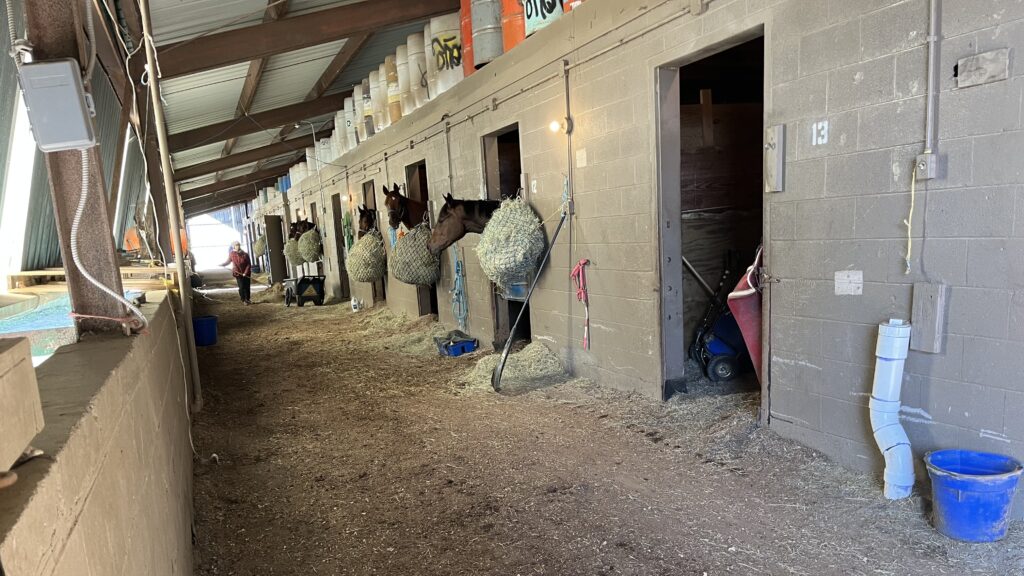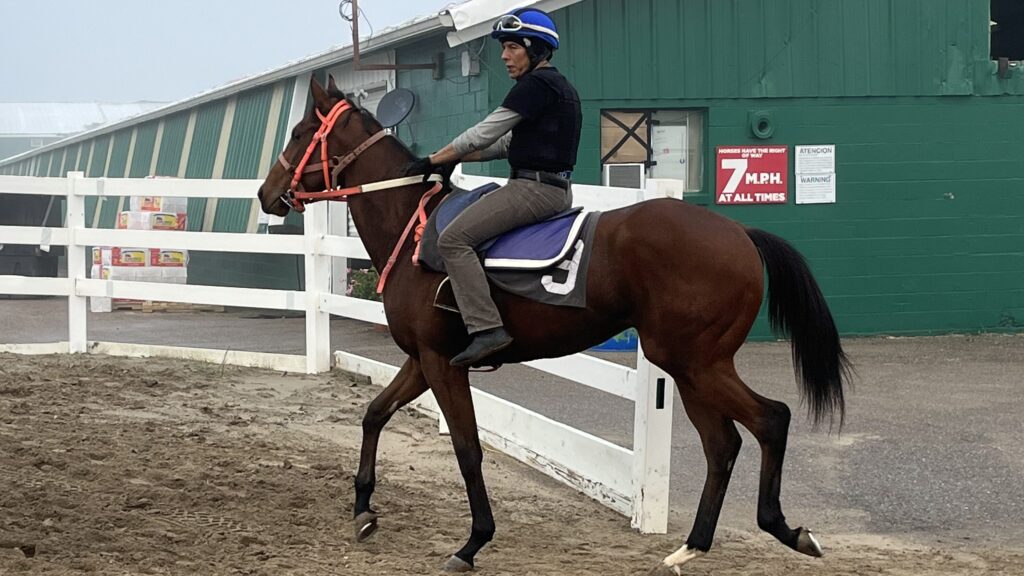Last updated: April 18, 2023
I was at the stables, examining the young horses for sale, when a friend of mine asked me if I was buying a horse as an investment. I laughed and told him that I was making an investment in my own happiness. But as I looked into the eyes of a chestnut filly, I couldn’t help but think that my friend had a point.
Horses can be a good investment, not only for the joy they bring but also for the potential financial returns and tax benefits. As I took the filly out for a test ride, I couldn’t help but think of all the ways I could make money with her. I could show her, breed her, or even resell her at a profit.
But it wasn’t just the potential for financial gain the filly’s energy and spirit were infectious, and I knew that she would bring me more than just money in the long run. Not only would I gain a companion and a source of happiness, but I also gained a potential source of income and tax benefits.
Buying a horse as a financial investment
When considering buying a horse as an investment, it’s important to understand what the term “investment” means. An investment is the use of money or assets in the hope of making a profit or generating income in the future. This can include things like stocks, real estate, and, in this case, horses.

Factors to Consider Before Buying a Horse as an Investment
When considering buying a horse as an investment, there are several factors to keep in mind. First, it’s important to consider the purpose of the horse. For example, will it be used for breeding, showing, or leisure purposes?
Secondly, you’ll want to consider the horse’s age, breed, and training level. Third, you’ll want to consider your own experience and resources, as well as the current market conditions. However, it’s important to note that buying a horse as an investment also comes with risks. The high initial and ongoing costs associated with horse ownership, including feed, veterinary care, and stall rental.
Additionally, there is also the risk of injury or illness, which can be costly and may even result in the horse’s untimely death. Furthermore, the market for reselling horses can be limited, making it difficult to recoup your investment.
It’s important to consider that investing in horses, especially racehorses, is high risk and not suitable for everyone. As with any investment, it’s important to consult a professional and do your own research before making a decision.
Buying and reselling horses for profit
When buying a horse as an investment, there are a few different ways in which it can generate a return. For example, the horse’s value may appreciate over time, similar to how the value of a piece of real estate can increase.
The primary factors that increase the value of horses are age, training, or market fluctuation. I have friends that buy young horses, train, and resell them for a profit. To do this requires a significant amount of knowledge and skill.
The key to success in this venture is the ability to train horses effectively and pick horses with the potential for success on the race track or in other equestrian disciplines. This requires skill and knowing horse breeding and market trends. It’s also important to consider the costs and responsibilities associated with horse ownership and training, as well as the risks involved.
I recommend that you consult with professionals such as trainers, veterinarians, and breeders before making the decision to buy a yearling; this isn’t a good investment for novice horse owners.
Market fluctuations affect horse values. Arabians typically skyrocket when the stock market is good, and their value crash during declines. Movies, high-profile competitions, and games also play a role in horse prices. For example, the kid’s movie “Spirit.” created a demand for buckskin horses, and their value shot up.

Tax benefits
I know a few people who claim they own horses to help them with their taxes. I’m not an accountant; however, here are some ways that I understand horses can provide tax benefits:
- Depreciation: The cost of a horse can be depreciated over a period of time, which can provide a tax deduction in the year the horse is purchased and in the following years.
- Business expense: If the horse is used in a trade or business, such as breeding, racing, or showing, the expenses associated with the horse can be considered business expenses, which can be deducted from your tax return.
- Charitable donations: If the horse is donated to a qualified charitable organization, the donor may be able to claim a tax deduction for the fair market value of the horse.
- Tax credits: if you have a piece of land where the horse lives and agree not to build anything on it, you may be entitled to a tax credit.
It’s important to note that the tax laws and regulations related to horses can be complex and are subject to change. It’s recommended to consult with a tax professional to understand the specific tax benefits that may apply to your situation.
Here is a good YouTube video about the cost of owning a racehorse.
Breeding horses as an investment
Breeding horses is one way of generating income from horse ownership. If a horse has good genetics and has performed well in competitions, it can be used for breeding and producing foals that can be sold at a profit.
Additionally, studs can also be used for artificial insemination, which can generate income. However, breeding horses also comes with a lot of risks and expenses. The breeding process requires knowledge and resources, such as a proper breeding facility, veterinary care, and genetic testing.
My friend invested in a quarter horse stud. He expected to make a lot of money selling semen to owners of broodmares. The offspring didn’t turn out to be good runners, and he lost money.
There is also no guarantee that the foal will be healthy or have the desired traits, and not all foals will be suitable for the intended purpose. Additionally, the market for foals can be uncertain and can fluctuate depending on the economy, supply, and demand of foals, and the current state of the horse market.

Buying a horse as an investment in your well-being
As I grow older, I’ve come to realize the importance of investing in myself, both for my mental and physical well-being. One way I choose to do this is through owning and riding horses. I see the money invested in a horse as similar to a gym membership or therapy session.
Just like a gym membership, owning a horse provides opportunities for regular exercise, helping to improve cardiovascular health, strength, and balance. The time spent outdoors caring for and bonding with a horse also positively impacts mental health and well-being, reducing stress and anxiety.
Additionally, like therapy, spending time with horses can have a calming effect and provide a sense of companionship. Caring for a horse also gives me a sense of purpose and responsibility, which can benefit my mental health.
Of course, it’s important to note that horse ownership comes with its own set of responsibilities and costs, and it’s not for everyone. But for me, the benefits to my overall well-being make it a worthwhile investment.
Riding horses can be a great way to improve one’s physical and mental health. Regular horseback riding can be a great exercise, helping improve cardiovascular health, strength, and balance.

Racehorses as Investments
The racehorse industry is another area where it’s possible to make a financial return through the horse’s prize money and stud fees if the horse is successful on the race track, but it’s also come with a high level of risk.
The costs of training and care for a racehorse can be high, and there is always a risk of injury or illness. Additionally, there may be limited race opportunities for certain horses and the unpredictability of race results.
I have a young horse that I have been trying to get ready for racing, but she just can’t seem to stay healthy. Whenever I think she’s ready to race, something happens, and she gets sick or injured.
Unfortunately, this is a common problem for racehorses. I’ve heard that only about 10% of racehorses actually get to compete. This is something every racehorse investor needs to understand before buying one.
If you’re thinking of buying a racehorse, you can increase your chances of success by looking at the horse’s pedigree and race record, the trainer, and the horse’s physical condition. Always have a horse vet checked before buying it, and keep in mind that investing in racehorses is high-risk, high reward, and not suitable for everyone.

Conclusion
In conclusion, buying a horse can be a good investment, but it’s not without its risks. While there are potential benefits, such as appreciation in value and income generation, there are also significant costs and risks associated with horse ownership.
When considering buying a horse as an investment, it’s important to carefully consider your own experience and resources, as well as the purpose and market conditions. Investing in racehorses is a different story; it’s high-risk, high reward, and not suitable for everyone. As with any investment, it’s important to consult a professional and do your own research before making a decision.
Despite the potential costs, owning a horse can be a rewarding experience and can also provide a return on investment if the horse is successful in competition or breeding. However, it is important to approach horse ownership as a long-term investment and not expect immediate financial gains.
FAQs
Is it worth buying shares in a racehorse?
It depends on how much you invest and your goals. In general, owning shares in a racehorse is a high-risk investment. However, if you invest for tax reasons or for the excitement of owning a racehorse, then it’s worth buying shares. Don’t do it to earn income.
When purchasing a horse, what factor is the most important?
When buying a horse, there are many factors to consider, and the most important one may depend on the specific use of the horse. However, some key factors to consider when purchasing a horse are conformation, temperament, pedigree, health, and training and performance history.
References
- American Horse Council. (2019). Economic Impact of the Horse Industry.
- The Jockey Club Thoroughbred Industry Economic Indicators.

About the Author: Miles Henry
Lifelong Horseman | Racehorse Owner | Published Author
Miles Henry brings over 25 years of hands-on experience training and owning Thoroughbred racehorses. Raised with Quarter Horses and Appaloosas, he’s spent a lifetime learning from horses—on the track, in the barn, and in the field. Today, he runs a small but successful racing stable in Louisiana and shares real-world insights on HorseRacingSense.com, helping horse owners, fans, and bettors navigate the sport with confidence.
📚 Books: View Miles’s books on Amazon »
🎧 Podcast Guest: Animal Tales Ep. 32 |
YouTube Interview
📩 Newsletter: Sign up for racing tips and horse care advice »
🔗 Follow Miles:
Twitter |
Facebook |
YouTube


